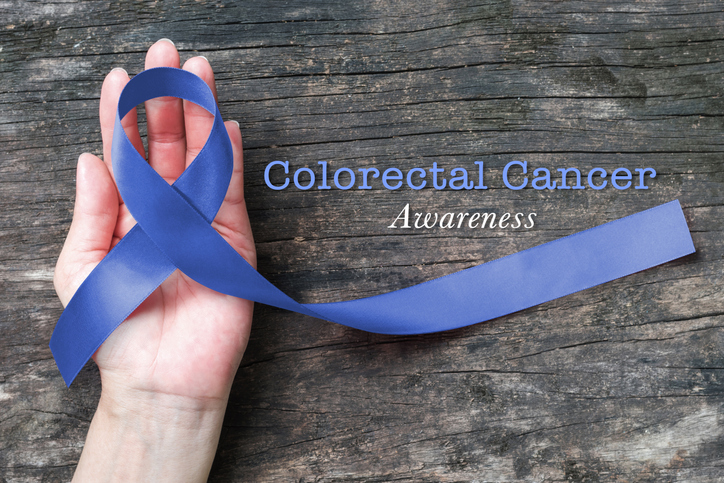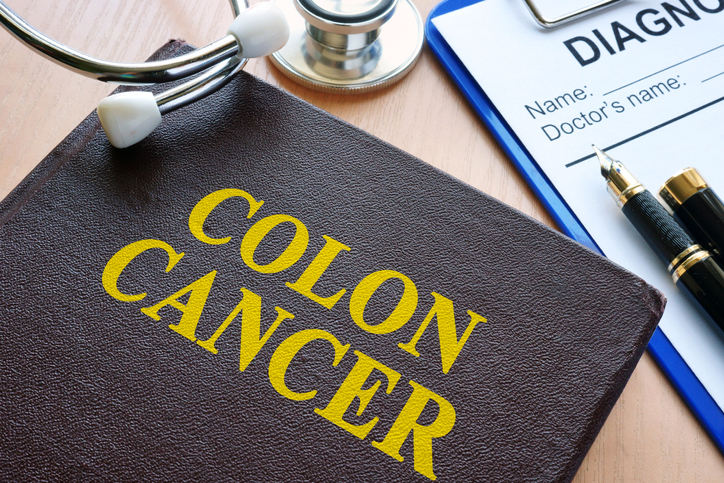Colon cancer, otherwise known as colorectal cancer is one of the most commonly diagnosed cancers. In fact, it is the third most common cancer and is the second leading cancer that causes death in both men and women. In many cases, the early symptoms of colon cancer are not always immediately apparent or easy to recognize. This leaves missed opportunities for early detection. Some patients may not experience any symptoms at all until cancer has already reached an advanced stage, which then becomes more difficult to treat. Because symptoms of colon cancer are not always apparent, it makes it even more crucial for patients to schedule screening tests at a certain age or if they have any risk factors that may require earlier screening. Over the past several years, there has been a decrease in deaths caused by colon cancer. This is because patients have become more proactive in screening efforts when it comes to asymptomatic cancers.
According to a study conducted by the Colorectal Cancer Alliance, the risk of getting colon cancer (on average) is about one in 23 for men and one in 25 for women. These risks increase as you age, which is why it is recommended to begin colorectal screening at age 45. Individuals with a family history of colon cancer are recommended to speak to their doctor about early screenings at a younger age.
Symptoms of Colon Cancer
Although symptoms of colon cancer are not always apparent or obvious, here are some indications that should be discussed with your doctor:
- Any major differences in your bowel movements
- Bright red, tarry, or black blood found in the stool
- Unexpected weight loss
- Stools that are narrower than normal
- Diarrhea, constipation, or the sense of the bowel not emptied completely
- Abdominal discomfort (i.e. frequent bloating, cramps, gas discomfort)
- Fatigue
- Anemia diagnosis through lab work
Risk Factors Associated With Colon Cancer
If any of the following risk factors apply to you, then it is important to discuss in further detail with your doctor. Here are some risk factors that may be associated with colon cancer:
- You have had a history of colon or rectal cancer, inflammatory bowel disease, adenomatous polyps, Croh’s disease, or ulcerative colitis
- You have a family history of colon or rectal cancer, inflammatory bowel disease, adenomatous polyps, Croh’s disease, or ulcerative colitis (especially first-degree relatives, such as a parent, sibling, or a child or several second-degree relatives)
Additionally, certain lifestyle elements can also play a role in heightening your risk of colon cancer, such as:
- Smoking
- Obesity
- A diet high in meat and low in vegetables, fruits, and whole grains
- High alcohol consumption
- Inactive lifestyle
How We Can Help
At the Gastroenterology Institute of Southern California, we specialize in the diagnosis and treatment of gastrointestinal disorders, otherwise known as disorders that affect the stomach and intestines. Our team is dedicated to providing patients with specialized, high-quality care that they need and deserve.
Our team encourages patients to take advantage of regular checkups in order to maintain the best health. Oftentimes, patients put seeing a gastroenterologist on the back burner, especially if they are asymptomatic. But because colon cancer is often asymptomatic, we strongly advise patients to visit us at a certain age for a colon and rectal cancer screening. Because the symptoms of colon cancer are not always apparent, many patients do not see their doctor until the cancer reaches a more advanced stage, making it more difficult to treat. With routine checkups, you can reduce the risk of detecting cancer at its later stages, which is the goal and most ideal situation if a patient does have colon cancer.
There are cases in which patients notice abnormalities or changes in their gastrointestinal health, as well as other overall health changes that should certainly be reported and examined by your doctor. With years of experience helping patients take control of their health, we are committed to helping you every step of the way. It all starts with your intention and having a skilled doctor on your side.
If you have concerns surrounding your gastrointestinal health or if you are at the age when a colonoscopy is necessary or you have an increased risk of colon cancer, then it is imperative that you schedule an appointment with our colonoscopy doctor to get the help you need. When choosing our team for your gastrointestinal care, we will provide you with the education, support, and resources necessary to get you the help you need.



